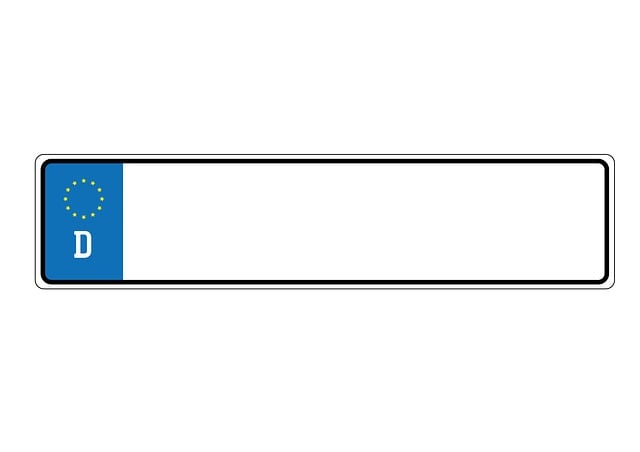VIN verification is a vital first step for car registration, ensuring vehicles' authenticity by matching their unique numbers against official databases. It's especially crucial for out-of-state registrations, preventing fraud, identity theft, and legal problems. While state regulations vary, professional VIN inspection services offer accurate solutions. Staying informed about DMV guidelines, using reliable sources, and maintaining meticulous records are best practices to ensure a smooth registration process.
Car registration is a complex process, made more intricate by varying state regulations and the rise in cross-border vehicle transactions. The initial step towards seamless registration is Vehicle Identification Number (VIN) verification—an essential procedure to ensure accuracy and legitimacy. This article guides you through the intricacies of VIN verification, offering insights on out-of-state processes, title checks, staying updated with DMV guidelines, and avoiding common paperwork errors. By understanding these aspects, you’ll be well-prepared for a successful car registration journey.
- Understanding VIN Verification: The First Step in Car Registration
- Out-of-State VIN Verification: Navigating Cross-Border Requirements
- Checking Vehicle Title and VIN Match: Ensuring Legitimacy
- DMV Guidelines: Staying Updated for Seamless Registration
- Rise of Government-Approved VIN Inspection Services
- Avoiding Paperwork Errors: Tips for Accurate Registration
- Best Practices for a Successful Car Registration Process
Understanding VIN Verification: The First Step in Car Registration

VIN verification is a critical process that forms the initial step in car registration, ensuring that every vehicle on the road has an accurate and legitimate identity. It involves validating the Vehicle Identification Number (VIN), which acts as a unique fingerprint for each car, providing detailed information about its make, model, year, and even previous ownership history. This verification is essential to prevent fraud and ensure only authentic vehicles are registered.
By checking the VIN against official databases, individuals or designated agencies can confirm that the vehicle’s details match the manufacturer’s records and that there are no discrepancies or flags related to theft, salvage, or outstanding recalls. This meticulous step is particularly crucial when dealing with out-of-state registration or transferring a vehicle title, as it helps streamline the process and prevents potential issues down the line, ensuring a smooth and legal car registration experience.
Out-of-State VIN Verification: Navigating Cross-Border Requirements

When it comes to car registration, Out-of-State VIN Verification presents a unique set of challenges. As vehicles can now traverse borders more frequently, the need for accurate and quick verification has intensified. Every state has its own set of rules regarding vehicle registration and titling, and these guidelines often include specific requirements for Vehicle Identification Number (VIN) checks. For instance, some states demand a comprehensive inspection to ensure the vehicle’s authenticity and history, while others may only require basic VIN matching with the national database.
Navigating these cross-border requirements can be intricate. Motorists must understand that what is required in their home state might differ significantly from the destination state. This is where professional assistance becomes invaluable. Reputable VIN inspection services are now equipped to handle such complexities, ensuring a smooth and accurate process regardless of location.
Checking Vehicle Title and VIN Match: Ensuring Legitimacy

When it comes to car registration, verifying the vehicle’s identity is a critical step. One of the fundamental aspects of this process is checking the Vehicle Title and ensuring it matches the Vehicle Identification Number (VIN). This simple yet vital task is your first line of defense against fraud and ensures that you’re dealing with a legitimate vehicle.
A thorough VIN verification process involves cross-referencing the provided VIN with the information on the vehicle title, including the make, model, year, and other specifications. Any discrepancies could indicate potential issues, such as a stolen vehicle or identity theft. By ensuring a match, you can rest assured that the registration process is on solid ground, protecting your investment and keeping you safe on the roads.
DMV Guidelines: Staying Updated for Seamless Registration

DMV guidelines are regularly updated to keep up with changing laws and technological advancements, ensuring a smoother registration process for all. It’s essential to stay informed about these updates, especially when navigating complex procedures like Out-of-State VIN Verification. The last thing you want is to be caught off guard by sudden changes or missing critical information that could lead to delays or rejections.
Regularly checking the DMV’s official websites and publications can help keep you in the loop. These sources provide clear instructions and guidelines for each step of the registration process, including specific requirements for different states and vehicle types. By staying updated, you’ll be better prepared to provide accurate information, ensuring a seamless experience when registering your vehicle.
Rise of Government-Approved VIN Inspection Services

In recent years, the demand for accurate and reliable vehicle registration processes has led to a significant rise in Government-Approved VIN Inspection services. This surge is driven by several factors: the increasing complexity of automotive technology, stricter DMV regulations, and a growing awareness of the importance of data integrity. With vehicles becoming more sophisticated and connected, ensuring the accuracy of Vehicle Identification Numbers (VIN) is no longer merely an administrative task but a critical step in maintaining safety standards and consumer protection.
As a result, government agencies worldwide are recognizing the need to approve specialized inspection services that can handle the evolving requirements. These approved services offer a higher level of precision and consistency compared to traditional methods, addressing common issues like paperwork errors, fraud, and discrepancies between vehicle titles and VINs. By leveraging advanced technologies and trained professionals, these services ensure that every step of the registration process is handled correctly from the get-go, thereby streamlining procedures and saving time for both individuals and dealerships.
Avoiding Paperwork Errors: Tips for Accurate Registration

Avoiding paperwork errors during car registration is key to a smooth process. Double-checking every detail, from vehicle identification numbers (VIN) to owner information, ensures accuracy and prevents delays. Keep detailed records of all documents, especially when transferring ownership or dealing with out-of-state requirements. Using reliable sources for VIN verification and staying updated on DMV guidelines can significantly reduce the risk of mistakes.
When filling out forms, be meticulous and ensure all fields are correctly completed. Inaccurate data entry is a common cause of registration issues. Consider having a comprehensive checklist to refer to, covering all necessary steps and documents required by your local DMV. This proactive approach will help you stay organized and minimize the chance of errors that could lead to costly delays or even legal complications.
Best Practices for a Successful Car Registration Process

When embarking on the car registration process, especially when dealing with Out-of-State requirements or intricate VIN Verification, adopting best practices ensures a smooth journey. Begin by gathering all necessary documents, including your vehicle’s title, registration papers, and Identification. Accuracy is key; double-check that all information matches precisely to avoid delays.
Stay informed about any updates in DMV regulations, as they can vary by region. Utilizing reliable online resources or consulting with professionals who offer Government-Approved VIN Inspection services can be beneficial. Additionally, maintaining a meticulous record of each step, from initial paperwork submission to final verification, will help you quickly address any discrepancies that may arise.
In today’s complex automotive landscape, accurate and timely car registration is non-negotiable. By understanding the importance of VIN Verification, navigating cross-border requirements, staying updated on DMV guidelines, and leveraging government-approved inspection services, you can ensure a smooth and successful registration process. Remember, minimizing paperwork errors is key to avoiding delays and getting your plans back on track.



